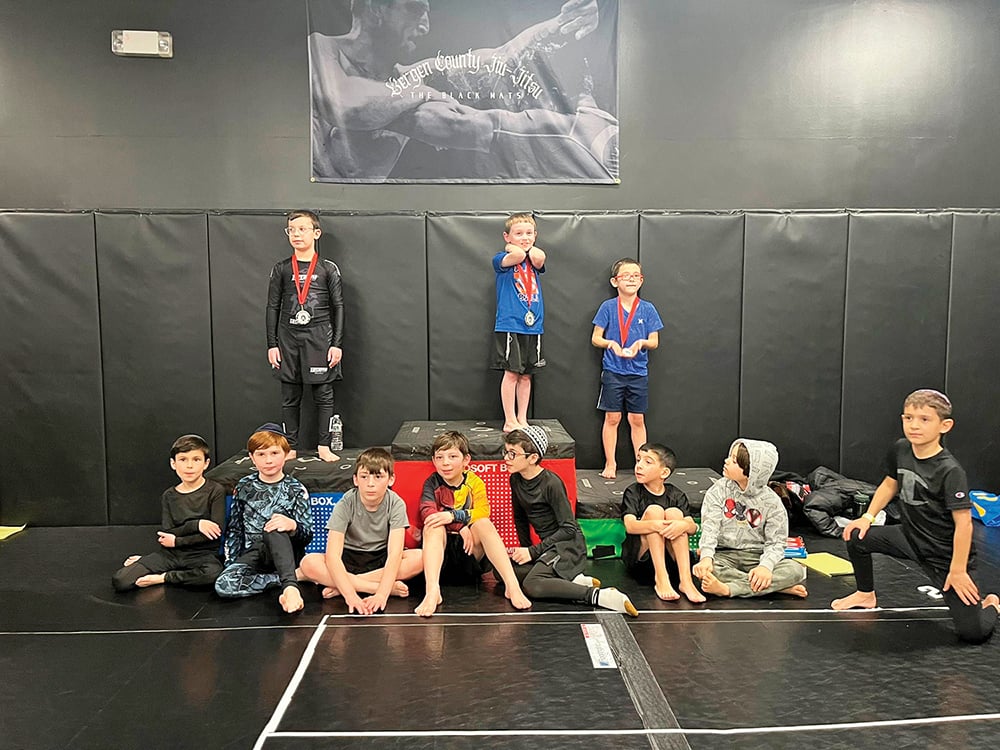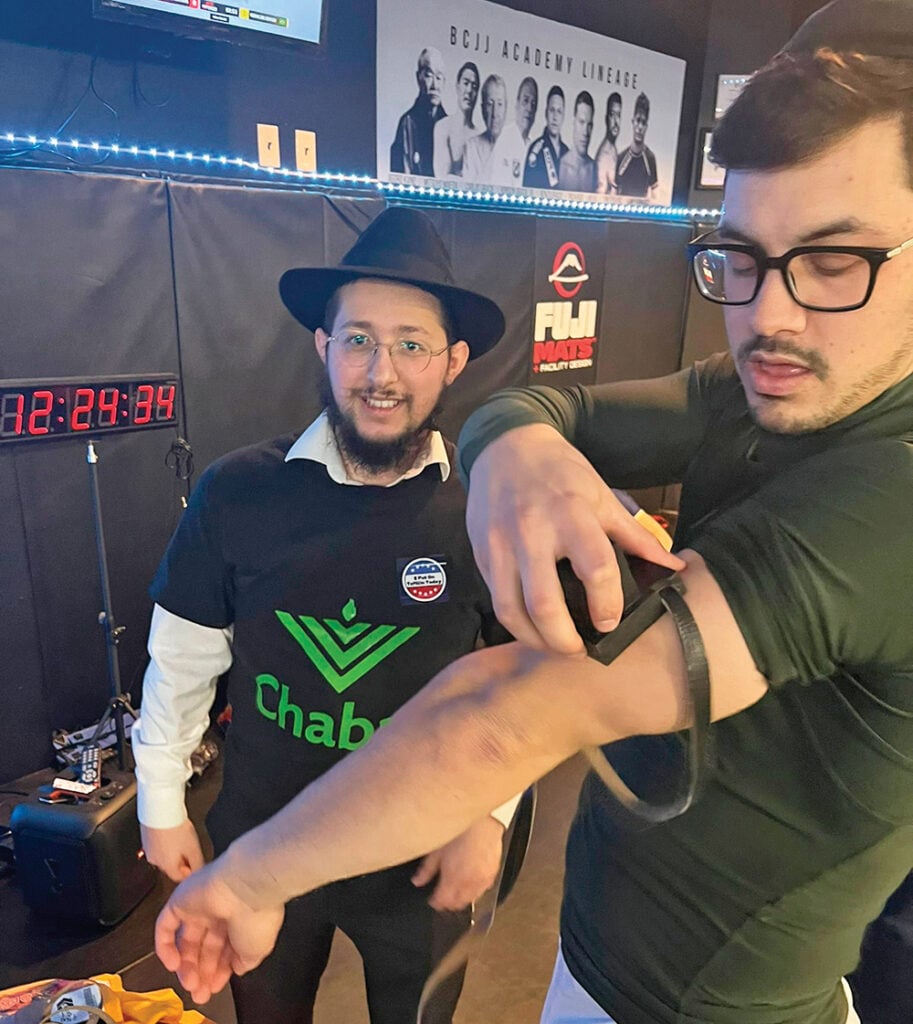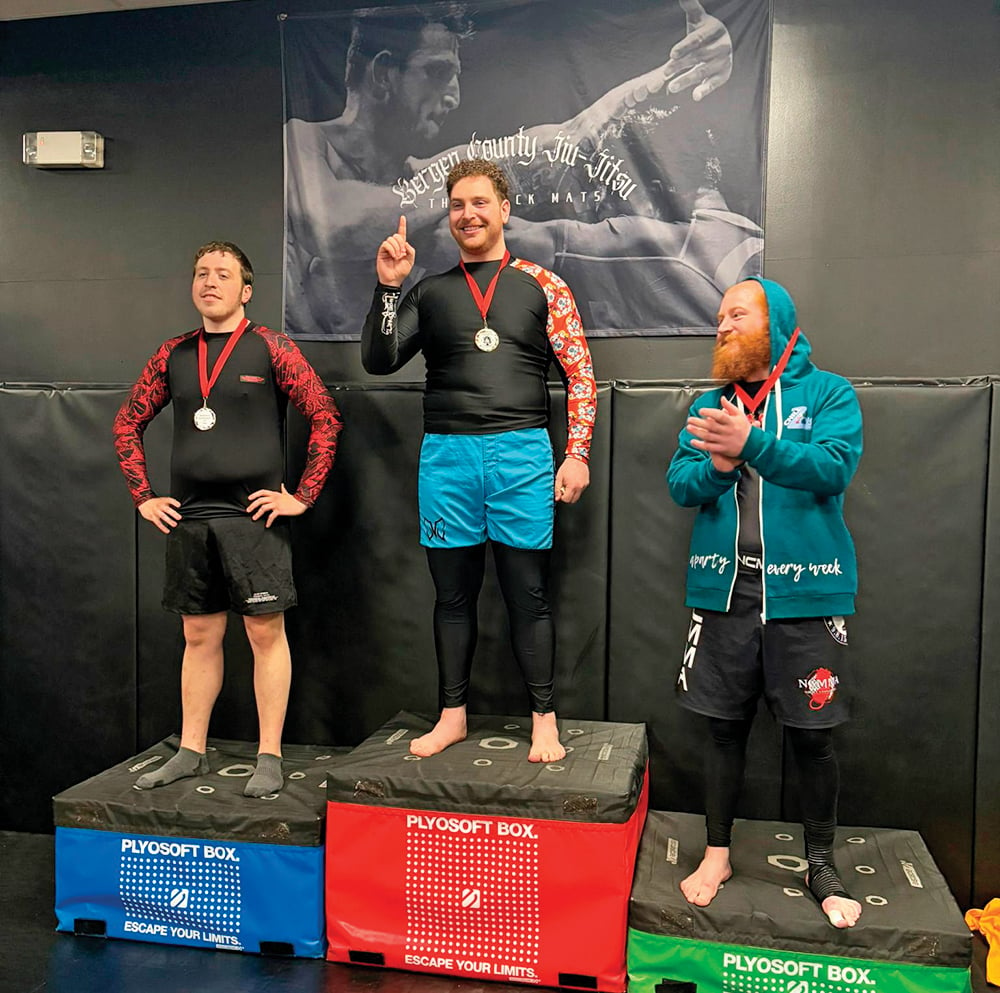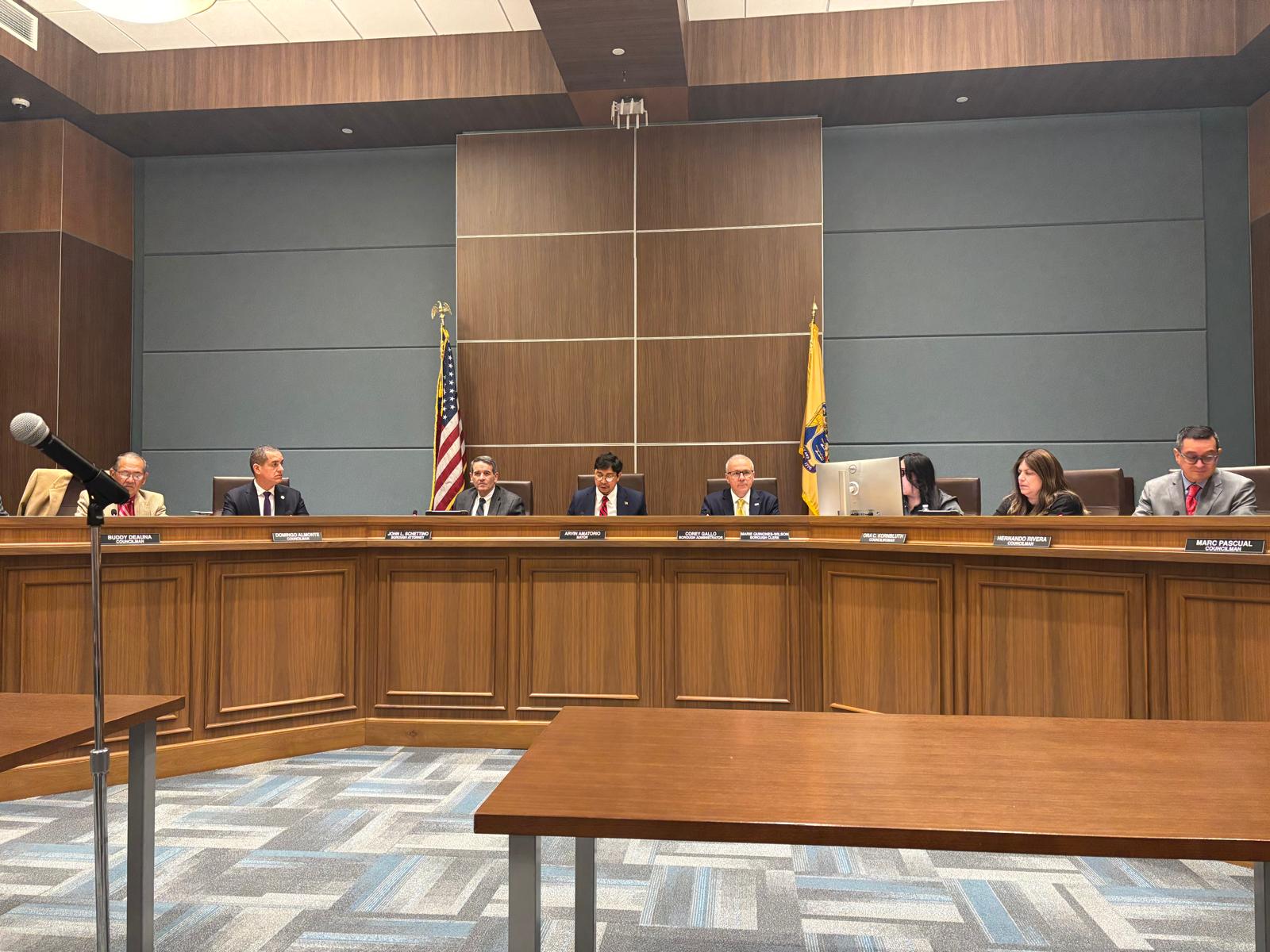
On Sunday, Feb. 2, Isaac Mass partnered with the Toms River Jewish Academy of Martial Arts (TRJ Academy) to host Kosher Clash, the first Jewish jiu-jitsu tournament. With more than 50 matches, the high-energy event brought Jews of all ages and backgrounds together in a spirited display of skill, competition, and camaraderie.
Held at Bergen County Jiu Jitsu in the UFC Gym in Paramus, New Jersey, the five-hour tournament featured three main events: a kids’ division, a men’s division, and, closing out the competition, a women’s division.

The Kosher Clash tournament used a common point system, awarding three points for a win, one for a draw, and none for a loss. It followed a single-elimination format, meaning competitors were eliminated after a single loss. The men’s division was divided by belt color, which indicates a practitioner’s level of skill and expertise.
For the kid’s division, Michael Mass and Avi Dombroff won gold. In the adult white belt division, Nosson Bulka and Lev Shulman took gold, while Brett Agrest won gold for blue belt and Shlomo Silber won gold for purple belt. Yaniv Blazer won Superfight No. 1, Alexander Chirashvili won Superfight No. 2, and Josh Dombroff won Superfight No. 3. In the women’s division, Kayla Walfish took gold.

The Jiu-Jitsu Community: A Home for Jewish Competitors
The sport naturally fosters a sense of community between jiu-jitsu practitioners. “Because it’s such an immersive and physically engaging art, you typically become friends with the person you’re rolling with. You learn so much about each other through the grappling”—a combat technique that involves gripping and controlling an opponent—Mass explains.
Whenever Mass travels, he visits local jiu-jitsu gyms, meeting practitioners all around the world. Because of the strong community built through the sport, he’s always welcomed. Mass said, “It doesn’t matter where I am in the world—when I reach out to a jiu-jitsu studio, they always say, ‘Sure, come on by.’ I’ve never seen that kind of openness in any other sport. It’s like the Chabad of the non-Jews.”
The jiu-jitsu community has also fostered a welcoming environment for Jewish members who are “misfits and found acceptance in this space,” Mass said. At the tournament, there were Jews from all walks of life—secular, Hasidic, Israeli and Modern Orthodox. Even Chabad made an appearance, wrapping tefillin on the competitors before they stepped onto the mat.
Competitors came from Montreal, Los Angeles and Boro Park to be part of the historic event. Restaurants also quickly jumped in to sponsor the tournament, offering gift cards to the winners.
Why Kosher Clash Was Created
Mass became fully Shomer Shabbat just over a year ago and while he initially didn’t think about how it would affect his ability to compete, he soon learned that all of the competitions took place on Saturday. He reached out to a few friends and asked them if they wanted to start their own tournament, “one that honors Shabbat and brings together Jewish athletes and that’s how Kosher Clash was founded,” Mass explained.
While numerous Jewish gatherings have been held in support of Israel and against anti-Semitism, Mass said “there’s never been a gathering of Jewish people for strength.” He wants Jews to “get together, unite and create a talented and inspiring community of people and do so in the honor of themselves, of God and of Shabbat.”
Lastly, Mass hopes to see the “Jewish community come together to showcase their talents, uplift one another, and engage in healthy confrontation and communication.” He envisions a space where Jewish people can “use their minds over their bodies and elevate themselves in a very physical yet spiritual way.”
Mass’s Journey to Jiu-Jitsu
Mass first became interested in jiu-jitsu about 10 years ago. With a background in krav maga, a combat system focused on quick self-defense, he was drawn to jiu-jitsu’s ability to control and de-escalate conflict. “Krav maga teaches you to finish a fight as quickly as possible, while jiu-jitsu teaches you how to control the movement of your opponent—to calm them down, de-escalate, or apply a chokehold. I was attracted by the idea of going with the flow of my opponent’s movements rather than resisting them,” Mass said.
Jiu-jitsu became even more meaningful for Mass during a difficult period in his life. “I got divorced, became a single dad, and had to restart my business,” he recalls. “Jiu-jitsu became a lifeline for me.”
During his divorce, he found himself releasing anger on the mat. “Jiu-jitsu puts you in a position where you can either become extremely combative or find a sense of peace. Any tension, hatred, or anger you’re holding onto will surface—you can’t hide those feelings. But if you’re seeking peace, that will also show in how you practice.”
Over time, Mass realized the practice had helped him grow. “What I truly wanted to develop in my jiu-jitsu was to harmonize, to make peace.”
What’s Next for Kosher Clash?
Mass has big plans for the future. He has another tournament planned for the summer, and he hopes to expand Kosher Clash into camping trips and Shabbatons, further strengthening the Jewish jiu-jitsu community.
For those interested in getting involved, reach out to Isaac Mass at [email protected] or stay updated by following
@kosherclashjj on Instagram.












